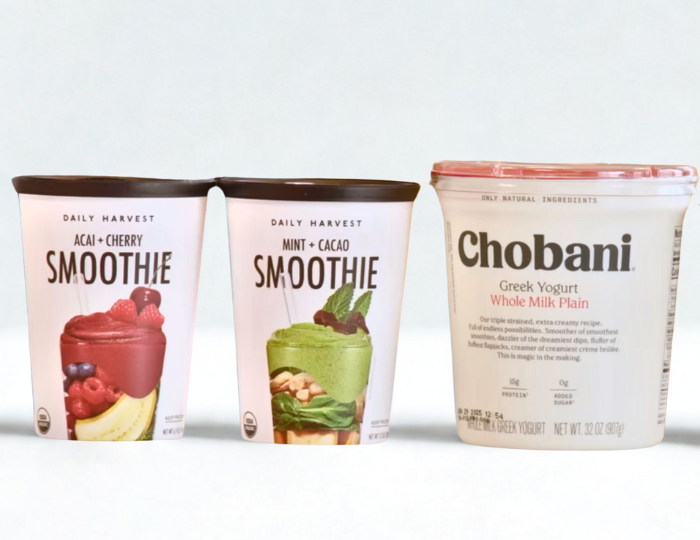
Chobani’s recent acquisition of Daily Harvest signals a bold expansion into the plant-based and ready-to-eat food sector. Known for its Greek yogurt, Chobani is branching out into a new category by acquiring a startup recognized for its frozen smoothies, harvest bowls, and soups. This move highlights Chobani’s commitment to tapping into the growing consumer demand for clean-label, plant-based convenience foods.
Daily Harvest, once valued at over $1 billion, faced reputational challenges after a 2022 product recall related to its French Lentil + Leek Crumbles. Despite this, the brand maintained strong recognition and continued to innovate in the plant-based space. Chobani’s decision to acquire Daily Harvest reflects confidence in the brand’s resilience, customer loyalty, and its powerful direct-to-consumer infrastructure.
More than just product diversification, this acquisition allows Chobani to access a broader consumer base and leverage Daily Harvest’s e-commerce subscription model. As the industry shifts toward digital and direct-to-consumer models, this deal positions Chobani to adapt and thrive in a rapidly evolving market.
How Does This Impact Intellectual Property and Branding Strategies?
The acquisition introduces key considerations around intellectual property (IP) and brand strategy. Daily Harvest holds several trademarks tied to product names and its distinctive branding. Chobani will need to determine whether to merge these assets into its core brand or maintain Daily Harvest as an independent identity. Keeping the brand separate could preserve its niche appeal, while integration may offer cross-promotional advantages.
Beyond trademarks, there are proprietary recipes and formulations that may be safeguarded through trade secret protections. In the food sector, IP encompasses more than logos—it includes digital content, packaging design, consumer interface, and product innovation. Chobani must carefully evaluate how to preserve and protect these IP assets as the brand portfolio expands.
What Are the Implications for Startups and Investors in the Food Sector?
This acquisition is a valuable case study for startups and venture investors alike. It demonstrates that even companies facing past operational or legal challenges can remain attractive acquisition targets—especially when they offer scalable infrastructure, loyal customers, and mission-driven branding.
Startups in the wellness, sustainability, and plant-based segments may find themselves increasingly sought after by strategic buyers. For founders, investing early in branding, IP protection, and direct-to-consumer relationships adds tangible long-term value. For investors, the Chobani-Daily Harvest deal reinforces the continued momentum of digital-first food companies.
What Does This Mean for Supply Chains and Distribution?
On the operations side, Chobani and Daily Harvest have significantly different supply chain models. Chobani relies on vertically integrated dairy production, while Daily Harvest outsources manufacturing and handles frozen fulfillment. Integrating these systems will likely involve renegotiating supplier agreements, optimizing logistics, and aligning safety standards across all product lines.
This merger also presents an opportunity for Chobani to bring Daily Harvest’s products into retail stores, while using Daily Harvest’s DTC platform to strengthen Chobani’s e-commerce footprint. Managing this dual-channel distribution effectively will be key to maximizing the value of the acquisition.
Frequently Asked Questions (FAQ)
Question: Why did Chobani acquire Daily Harvest?
Answer: Chobani aims to expand into the plant-based and direct-to-consumer food markets. Daily Harvest offers a ready-made platform with strong branding, loyal customers, and operational infrastructure that aligns with Chobani’s growth strategy.
Question: Will Daily Harvest keep its name and branding?
Answer: While the final branding strategy has not been announced, it’s likely that Chobani will maintain the Daily Harvest brand to preserve its identity and market value.
Question: How does this deal affect Daily Harvest’s past legal issues?
Answer: Chobani is expected to address past liabilities through careful risk management, product quality assurance, and enhanced safety protocols moving forward.
Question: What does this acquisition mean for food startups?
Answer: It reinforces the importance of brand strength, scalability, and digital strategy for attracting buyers. Even startups that have faced challenges may find exits if they offer long-term value.
Question: Will this change how Daily Harvest’s products are sold?
Answer: Possibly. Chobani may bring Daily Harvest products to brick-and-mortar retail, while also using the brand’s subscription model to grow its own digital footprint.
Final Thoughts
The Chobani-Daily Harvest deal is more than a headline—it’s a blueprint for how food and beverage companies are navigating growth in today’s market. From IP management and brand integration to investor confidence and operational logistics, the transaction offers valuable lessons for legal counsel, brand strategists, investors, and founders alike. As M&A activity continues in the wellness and plant-based sectors, the firms that invest in branding, technology, and resilient supply chains will be best positioned to lead the next chapter of innovation.
At Juris Law Group, we help clients in the food and beverage industry protect their IP, navigate acquisitions, and structure scalable operations. To learn more about how our legal team supports growth-stage companies and strategic investors, visit www.jurislawgroup.com.



